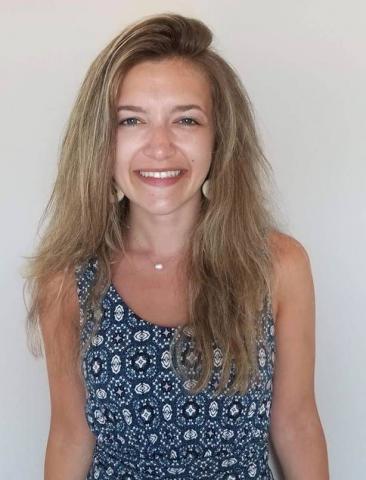Melanie MacMullan is a third-year ARCS Scholar pursuing her PhD in Chemical Engineering at University of Southern California (USC) Viterbi School of Engineering. Her research focuses on developing a better understanding of the immune system by studying protein interactions in immune cells. In a unique arrangement with USC, Melanie has joined a commercial team at Curative Inc. in Los Angeles, California, where she is putting her knowledge and skill to use.
Curative currently provides approximately 25 percent of COVID-19 testing in California, contributing to a base of thousands of identified patients who have previously been infected with the virus. Melanie is part of the team developing a test that detects antibodies against the virus in patient samples. Her methodology includes screening COVID-19 antibody-detection tests that have been developed and manufactured by local companies. In the next stage, Melanie and her team intend to support scale-up of the production of the tests they deem successful that meet FDA guidelines to facilitate widespread antibody detection in the community. This technology will enable improved contact tracing and contribute to vaccine development by illuminating which antibodies against the virus are most prevalent in the population.
Melanie is appreciative of ARCS Foundation for the support she has received from the organization. “The ARCS Scholar Award has crucially shaped my PhD experience by providing not only financial support but also a sense of empowerment that has enabled me to confidently pursue my research interests both inside and outside of academia.”
Along with three other ARCS Scholars, Melanie participated on the ARCS Scholar COVID-19 Panel on June 12, 2020. Below are Melanie’s responses to the follow-up questions on her projects to combat COVID-19.
Q: What measures do you take in the lab to protect yourself from the viruses that are in the samples you test? Are you at high risk for contracting coronavirus because of your work?
A: Thankfully because of the testing capacity available at Curative, I am tested for the coronavirus RNA on a daily basis. This helps to prevent the spread of the virus within the company if we were to get infected, while also providing us with a sense of security about the infectious nature of the samples we work with. Additionally, we are equipped with N95 masks, double gloves, disposable lab coats on top of our regular lab coats, booties, and hairnets when we are working with potentially infectious samples. This PPE drastically reduces the potential of infection from sample handling. While there certainly is a risk of infection that comes from working with these samples, the safety measures we have put in place help to mitigate the risk.
Q: You pivoted from work on your degree to be part of the response to the pandemic. Will you continue in this new direction or move back to your original research focus?
A: Although I have greatly enjoyed working with Curative on this project and have come to enjoy working in a startup environment, I am only two years into my PhD work and will definitely be returning to my original research once I’ve finished my work with Curative. However, this work experience has opened my eyes to the opportunities that arise when working for a startup and has inspired me to consider this as a career path once my PhD work is complete.

